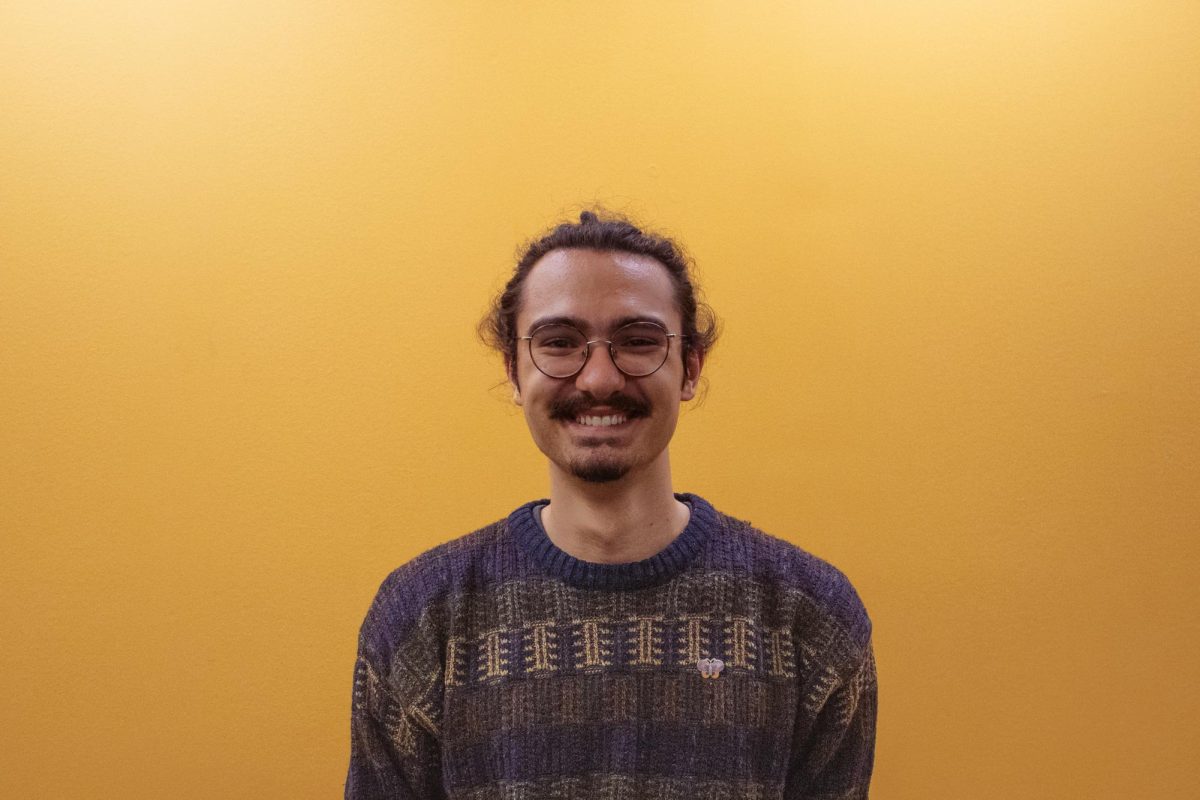On Sept. 12, laughter rang out from the basement of the 140 West 62nd Street Building as a group of students pretended to fight like kindergarteners on a playground, take a lie detector test and hunt for jellyfish during Stove’s Comedy Club’s first show of the year, titled “Hide and Go Stove’s.”
The performance aimed to showcase returning members of the club and introduce the group to Fordham students. Stove’s was founded in 2013 and is the only comedy group at Fordham Lincoln Center. There is no audition required to join, and students of all experience levels are encouraged to participate. The club offers members opportunities to hone their skills in improvisation, sketch performance and stand-up comedy.
Three members of the Stove’s executive board recall that when they joined the club as first-years, they felt drawn to the group by their mutual interest in comedy.
“There’s something in people who do comedy, or meeting people and the word comedy is in the air. It opens the door in a fun way. (It’s) almost like being given the permission to joke.” Jake Colangelo, FCLC ’26
The club’s vice president Ephram Oliver, Fordham College at Lincoln Center (FCLC) ’26, was hoping to find “creative connections” to aid in his filmmaking work, while social media manager Colin Dowd, FCLC ’26, was looking for a performance club with “a community around it.” Additionally, club president Jake Colangelo, FCLC ’26, recalls first encountering Stove’s at the club fair and feeling an instant connection.
“There’s something in people who do comedy, or meeting people and the word comedy is in the air,” Colangelo said. “It opens the door in a fun way. (It’s) almost like being given the permission to joke.”
He soon “fell in love with” the club because it provided a space for students interested in comedy to work together and share their passions.
Everyone in Stove’s has the opportunity to learn improvisation, sketch comedy and stand-up, and many of the group’s performances showcase all three. To Colangelo, these disciplines are “comedically transferable,” as experience with each practice strengthens performance in the other areas. Oliver believes another benefit of this multifaceted approach is “a more realistic expectation for how comedy plays out professionally” for members who hope to pursue comedy outside of a college setting.
The meetings are structured so that club members can combine their efforts across each form of comedy. This exploration is “partially what Stove’s is about … opening our mind to what comedy can be,” Dowd said.
Rather than immediately specializing in one area or another, members of Stove’s can learn about aspects of comedy they may not have previously considered. Both Dowd and Oliver liken this to exercise, saying that this sort of work helps them develop their comedic “muscles.”
Colangelo said he believes the spirit of collaboration and exploration is an integral part of the comedy club’s culture. He identifies the group’s tight-knit nature and comedic diversity as “what makes Stove’s so unique as a non-audition multidisciplinary club,” describing their work as a “strange, beautiful thing that comes out of collaborating with 20 different artists on a single production.”
Everyone in Stove’s has the opportunity to learn improvisation, sketch comedy and stand-up, and many of the group’s performances showcase all three.
Indeed, many aspects of comedy, particularly improv, rely heavily on teamwork among performers. In one game played in the show called “New Choice,” a performer pressed a buzzer to interrupt their scene partners, forcing whoever spoke last to change their previous line. Performers would pivot from agreeing to disagreeing with a scene partner, from being unsure to enthusiastic about a decision, and in one case, from loving to hating their parents. The other performers would then immediately attempt to justify what had just been said, resulting in hilarious chaos.
Stove’s provides a space for students to engage with comedy and with their community, and right now, as Dowd said, that space is especially crucial.
“The world is hard to face,” he said. “I think you need comedy … there’s a reason people say it’s the best medicine — because it is.”
Oliver also acknowledged comedy’s ability to “lift people up,” and proposed that comedy can be a tool for “questioning power” and “(creating) community where community can often be suppressed.”
Stove’s Comedy Club is currently welcoming new members and meets every Wednesday at 7 p.m. in G76B. Colangelo encourages anyone who may be interested in comedy to “come join us … we would be thrilled to have you”.
The next Stove’s show, which will be performed in the style of a game show, will take place in the Lowenstein South Lounge on Friday, Oct. 10. Stove’s can be found on Instagram and YouTube at @stovescabincrew.

